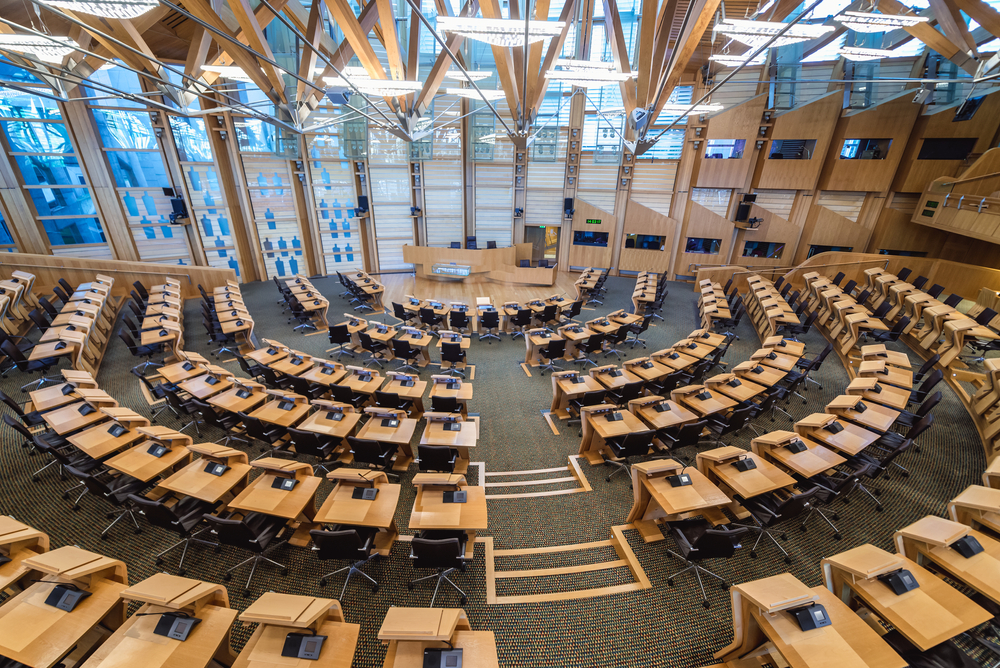The Scottish Parliament passed controversial new legislation on Thursday that will make it easier for people to legally change their gender and reduce the minimum age to do so from 18 to 16.
The Gender Recognition Reform (Scotland) Bill was approved by 86 votes to 39 after two days of debate in Holyrood, which were disrupted on Wednesday by protesters who object to the gender reforms.
Following the bill’s enactment, a medical diagnosis of gender dysphoria will no longer be required in order to apply for a gender recognition certificate (GRC) to legally change gender. Furthermore, the time an applicant must live in their preferred gender will be slashed from two years to three months with a three-month reflection period.
The radical law will also lower the minimum age at which a person can apply for a GRC from 18 to 16 years old — a longer reflection period of six months will apply to minors.
The bill was passed by Nicola Sturgeon’s devolved government despite polling results published earlier this month by YouGov that revealed as many as two-thirds of Scots aged 16 or over oppose the plans.
The YouGov survey commissioned by The Times newspaper showed that 59 percent of respondents objected to reducing the time a person should be required to live in their preferred gender; 60 percent opposed removing the requirement for a doctor’s diagnosis of gender dysphoria; and 66 percent opposed reducing the minimum age required to apply for a GRC from 18 to 16 years old.
As MSPs debated final amendments to the bill on Wednesday, women’s rights campaigners voiced their protests in Scotland’s parliamentary chamber, many of whom are concerned the bill will impact the safety of women and children and that it fails to protect women’s rights and single-sex spaces.
Protesters temporarily brought a halt to proceedings in Holyrood as cries of “shame” rang down from the public gallery aimed at the presiding members of the Scottish Parliament (MSPs).
Prominent women’s rights campaigner and children’s author, J.K. Rowling, described the reforms last week as “the single biggest assault on the rights of Scottish women and girls in my lifetime,” calling the bill “Nicola Stugeon’s poll tax,” a reference to former British Conservative Prime Minister Margaret Thatcher’s hugely unpopular tax reforms.
The UN’s special rapporteur on violence against women and girls had expressed concerns the gender reforms could allow violent males to “abuse” the system.
Commenting on the result in the Scottish Parliament, one proponent of the bill, MSP Pam Gosal, said it is “a sad day to be a woman in Scotland.”
She apologized to “all women and girls that we were not able to throw out the SNP government’s flawed bill,” but insisted campaigners “won’t give up.”
Adding to her last point, U.K. government’s Secretary of State for Scotland Alistair Jack said following the vote: “We share the concerns that many people have regarding certain aspects of this bill and, in particular, the safety issues for women and children.
“We will look closely at that, and also the ramifications for the 2010 Equality Act and other UK wide legislation, in the coming weeks — up to and including a Section 35 order stopping the bill going for Royal Assent if necessary.”
A Section 35 order references the power reserved by the U.K. government in the Scotland Act 1998, which can be used to prevent the Scottish Parliament from submitting a bill for Royal Assent — the final hurdle to passing legislation in the United Kingdom — should it believe it has “reasonable grounds” to do so.
Such a move would likely be contested as a constitutional matter, which could see a long delay to the enactment of the bill passed on Thursday, if it would be enacted at all.






